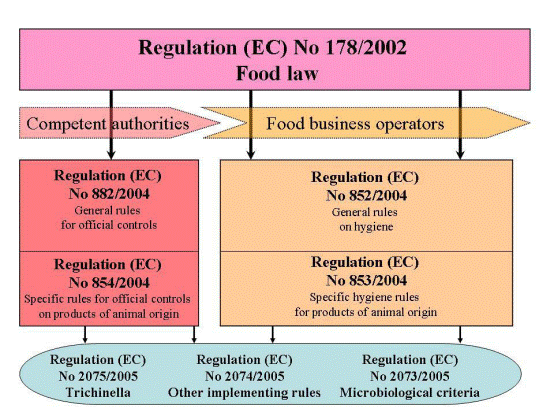Baseline regulations
In January 2002 the European Parliament and the Council determined the general principles and requirements of food law (Reg. (EC) 178/2002). The General food law aims to provide a framework to ensure a coherent approach in the development of food legislation. In this context a risk analyses principle is included by Regulation (EC) 178/2002. This principle has been divided into three interrelated components (risk assessment, risk management and risk communication).
Regulation (EC) 178/2002 extends the definition of food companies and with this of product responsibility. According to this regulation “‘food business’ means any undertaking (…) carrying out any of the activities related to any stage of production, processing and distribution of food”. In relation to this definition “’food business operator’ means the natural or legal persons responsible for ensuring that the requirements of food law are met within the food business under their control”. Similar requirements have been defined for feed production. If a hazard occurs in relation with food or feed, every actor of the production chain has to prove that he has not caused it.
In 2004 the EU-hygiene package was added to the General food law:

(Source: Com(2009) 403)
EU regulation 852 requires HACCP – Hazard Analysis and Critical Control Points for all food producers. The primary process has to comply with annex A of 852, which does not completely cover HACCP. Locally, though, private systems may have adopted the HACCP principles.